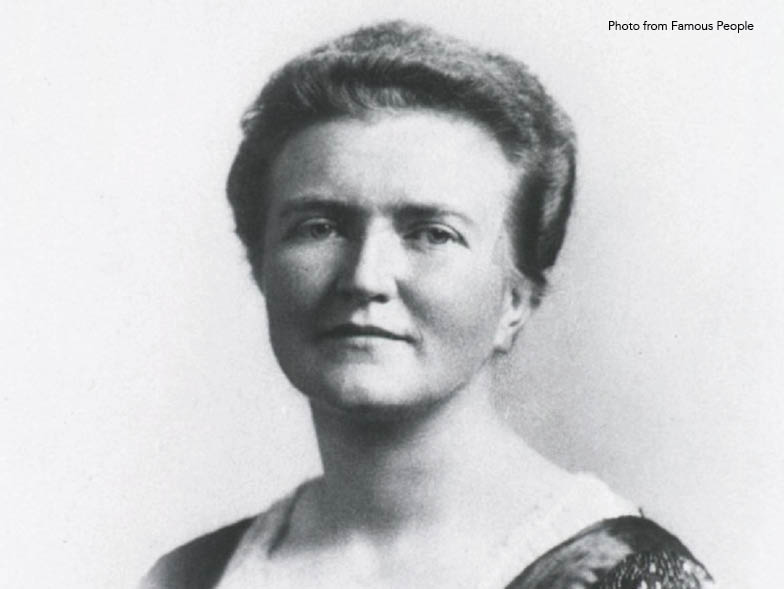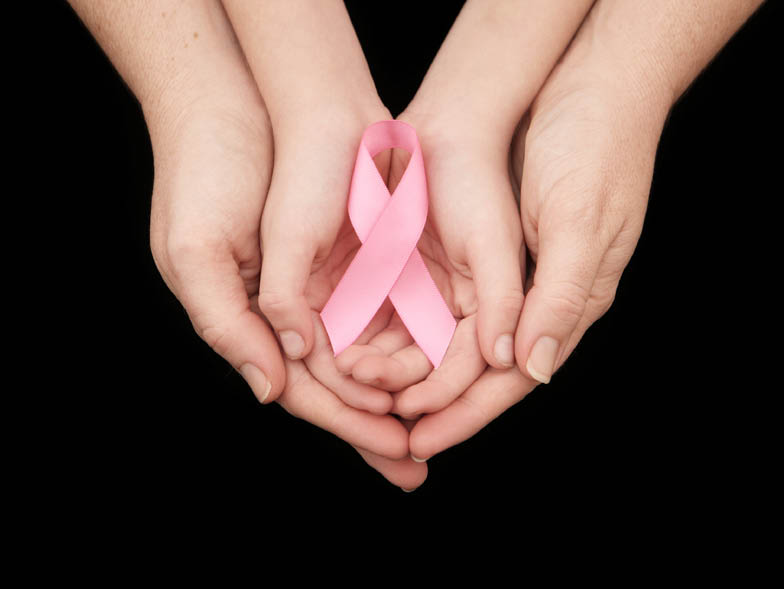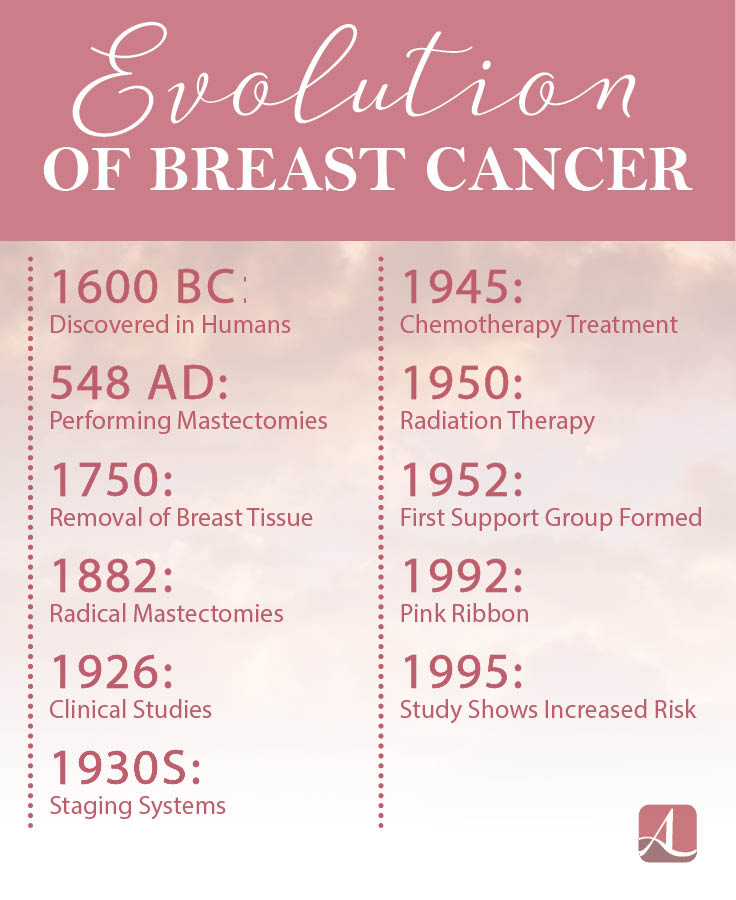The Breast Cancer Timeline
Though breast cancer and various other cancers have been documented in humans that lived hundreds of thousands of years ago, much of what we know about the disease has really only been discovered in the last few hundred years.

1600 BC
Breast cancer was the first type of cancer to be discovered in humans—primarily because it can be felt through the skin. Thousands of years ago, ancient Egyptians wrote of eight cases in which people developed tumors or ulcers in the breast.

548 AD
Aetius of Amida, one of the first Christian medical writers in Greek history, performed the first known mastectomy, on the empress Theodora.

1700
French surgeon Jean Louis Petit became the first person to remove breast tissue, as well as lymph nodes, and chest muscle, as a treatment for breast cancer.

1882
American surgeon William Stewart Halstead became the first doctor to perform radical mastectomies (removal of surrounding chest tissue and lymph nodes)—a process aided by advancements in surgical technology.

1926
More than three-thousand years after breast cancer’s initial discovery, the first clinical study on the disease was conducted by Janet Lane-Claypon. It identified risk factors still believed true today.

1930s
The first breast cancer staging systems were developed, based on varying degrees of severity and progression of the disease.

1945
Modern chemotherapy was developed after World War II as a treatment for several cancers. Chemo typically uses a combination of drugs or other therapies to combat cancer cells from spreading.

1950
Radiation therapy was implemented as one of the most effective, and commonly used, forms of treatment for breast cancer, according to Breastcancer.org.

1952
The first breast cancer support group was formed, ringing in a new era of guidance for women post-mastectomy, and bringing a community of survivors together.

1992
The famous breast cancer awareness pink ribbon was adopted as an official symbol for the month of October, as a promotional idea from Self Magazine and Estée Lauder. A similar promotion by activist Charlotte Haley, was started around the same time, however, Haley used peach colored ribbons.

1995
A study was released proving that hormone replacement therapy likely raises the risk of developing breast cancer considerably, according to the Breast Cancer Fund.































